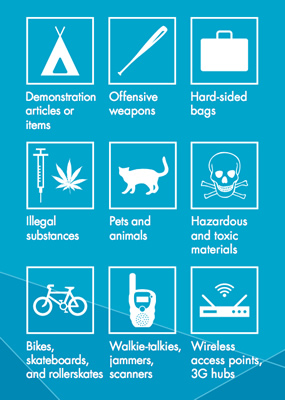It appears that the LOCOG (London Organizing Committee of the Olympic Games) plans to prohibit the use of mobile hotspots during the Olympics. Various news outlets managed to notice the fine print just before the event begins Friday this week. Although non-sanctioned hotspots are banned, smartphones, tablets and other mobile devices are definitely allowed – and so are their data (i.e. 3G) connections. It's the "sharing" part that LOCOG intends to stamp out.
Here's the official line from London's Olympic committee:
Personal/private wireless access points and 3G hubs (smart devices such as Android phones, iPhone and tablets are permitted inside venues, but must not be used as wireless access points to connect multiple devices)
Source: london2012.com (pdf)
How the London-based committee plans to enforce this rule is unknown. It may be merely a platitude paid to British Telecommunications who aims to generate revenue from the event via their enormous web of Wi-Fi access points.
BT – UK's largest ISP – is the "official communications services partner" of the Olympics, having won a contract deal with Olympic organizers. According to GigaOm, the committee green lighted BT's plans to deploy roughly 1,500 Wi-Fi hotspots throughout Olympic venues while 1,000 access points are expected to be placed in the Olympic Park.
While it is clear the 2012 Olympics will be sopping wet with connectivity, there's one thing to consider: BT's hotspots aren't free. Infrastructure certainly isn't free and BT is likely anxious to recoup its expenses (and maybe even turn a profit). As a result, many spectators will find themselves paying £5.99 for 90 minutes of access, £9.99 for 24 hours or £26.99 for five days. In other words, that's about $9.27, $15.46 or $41.77, respectively. Existing BT, O2 and Tesco Mobile customers will be exempt from the fees though, able to enjoy the same access as everyone else without the cost.
While there is an obviously a monetary incentive to prohibit mobile hotspots, there may be other valid concerns regarding wireless network interference, malicious hotspots or putting a stop to enterprising capitalists aiming to provide their own premium Wi-Fi solutions. Without an effective way to enforce the prohibition though, I don't suspect the ban will make much difference.
